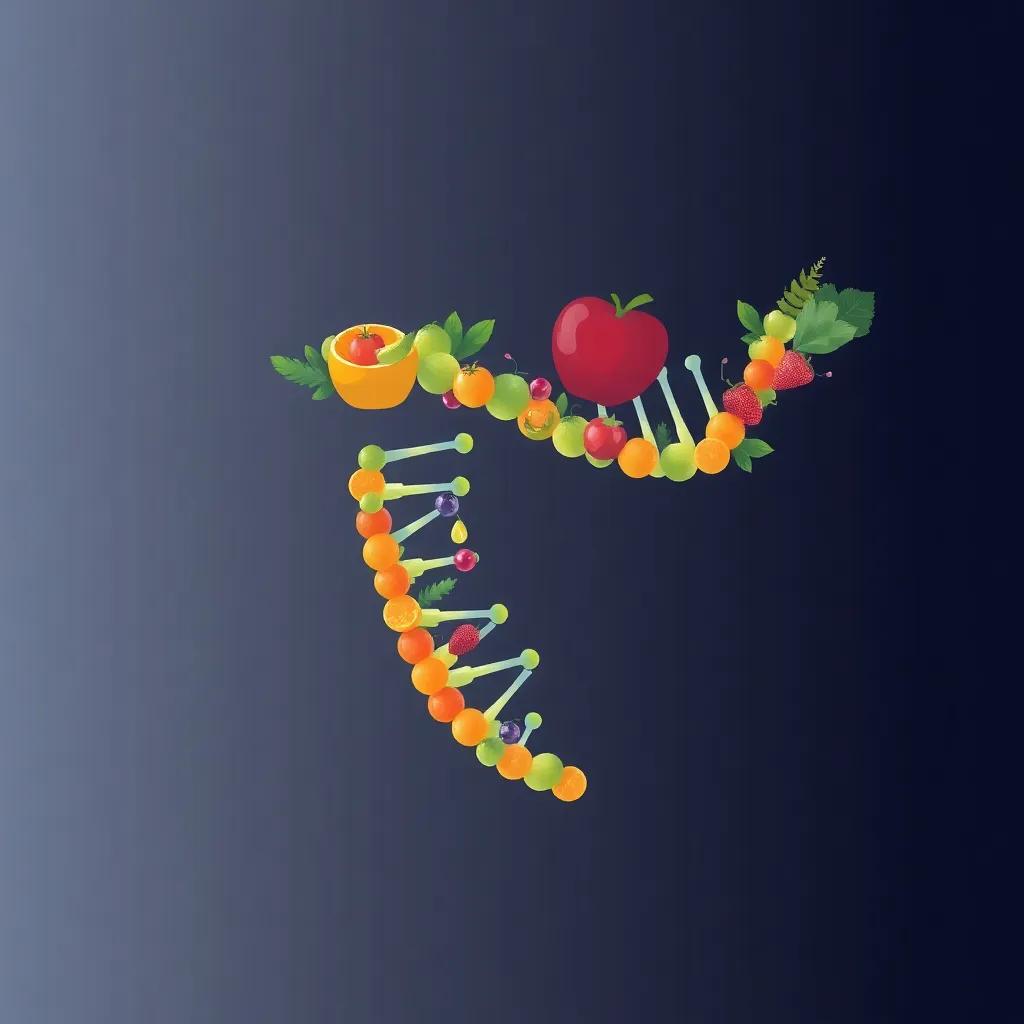Exploring how genetic variations influence dietary responses and the potential of nutrigenomics to prevent chronic diseases through personalized nutrition.
Nutrigenomics bridges genetics and nutrition, offering personalized dietary strategies to prevent diseases and optimize health based on individual genetic profiles.
Introduction to Nutrigenomics
Nutrigenomics is an emerging field that combines the study of nutrition and genomics to understand how the foods we consume interact with our genes. This interaction can influence our health, risk of disease, and even our response to dietary interventions. According to a 2020 review published in the Journal of Nutrigenetics and Nutrigenomics
, nutrigenomics aims to provide personalized dietary recommendations based on an individual’s genetic makeup.
Dr. Ahmed El-Sohemy, a professor at the University of Toronto, stated in a press release, Nutrigenomics has the potential to revolutionize how we approach diet and health by moving away from a one-size-fits-all model to a more personalized approach.
Genetic Variations and Dietary Responses
Genetic variations, such as single nucleotide polymorphisms (SNPs), play a crucial role in how individuals metabolize nutrients. For example, variations in the FTO
gene have been linked to differences in how people respond to dietary fats. A 2019 study in the American Journal of Clinical Nutrition
found that individuals with certain FTO gene variants experienced greater weight loss on a low-fat diet compared to those without the variant.
Another example is the MTHFR
gene, which affects folate metabolism. Individuals with specific MTHFR mutations may require higher intakes of folate to prevent deficiencies and associated health risks, such as neural tube defects in pregnancy.
Nutrigenomics in Chronic Disease Prevention
Chronic diseases, such as diabetes, cardiovascular disease, and cancer, are influenced by a combination of genetic and environmental factors, including diet. Nutrigenomics offers a promising avenue for preventing these diseases by tailoring dietary recommendations to an individual’s genetic profile.
For instance, a 2021 study published in Nature Communications
highlighted how personalized dietary interventions based on genetic data could reduce the risk of type 2 diabetes. The study found that individuals with a specific genetic variant benefited more from a high-fiber diet in terms of blood sugar control.
Dr. Jose Ordovas, a leading researcher in nutrigenomics, emphasized in an interview with ScienceDaily
, By understanding the genetic factors that influence dietary responses, we can develop targeted strategies to prevent chronic diseases before they manifest.
Practical Applications of Nutrigenomics
Integrating nutrigenomics into daily life involves understanding one’s genetic predispositions and making informed dietary choices. Genetic testing services, such as 23andMe and Nutrigenomix, provide insights into how an individual’s genes may influence their nutritional needs.
For example, someone with a genetic predisposition to vitamin D deficiency might prioritize foods rich in vitamin D or consider supplementation. Similarly, individuals with a higher genetic risk for cardiovascular disease might benefit from a diet low in saturated fats and high in omega-3 fatty acids.
However, experts caution that nutrigenomics is still an evolving field. Dr. Martha Stipanuk, a professor of nutritional sciences at Cornell University, noted in a blog post, While nutrigenomics holds great promise, it’s important to remember that genetics is just one piece of the puzzle. Lifestyle factors, such as physical activity and stress management, also play a critical role in health.
Conclusion
Nutrigenomics represents a transformative approach to health and nutrition, offering the potential to prevent chronic diseases and optimize well-being through personalized dietary strategies. As research in this field continues to advance, it is essential to integrate genetic insights with broader lifestyle considerations to achieve the best outcomes.




